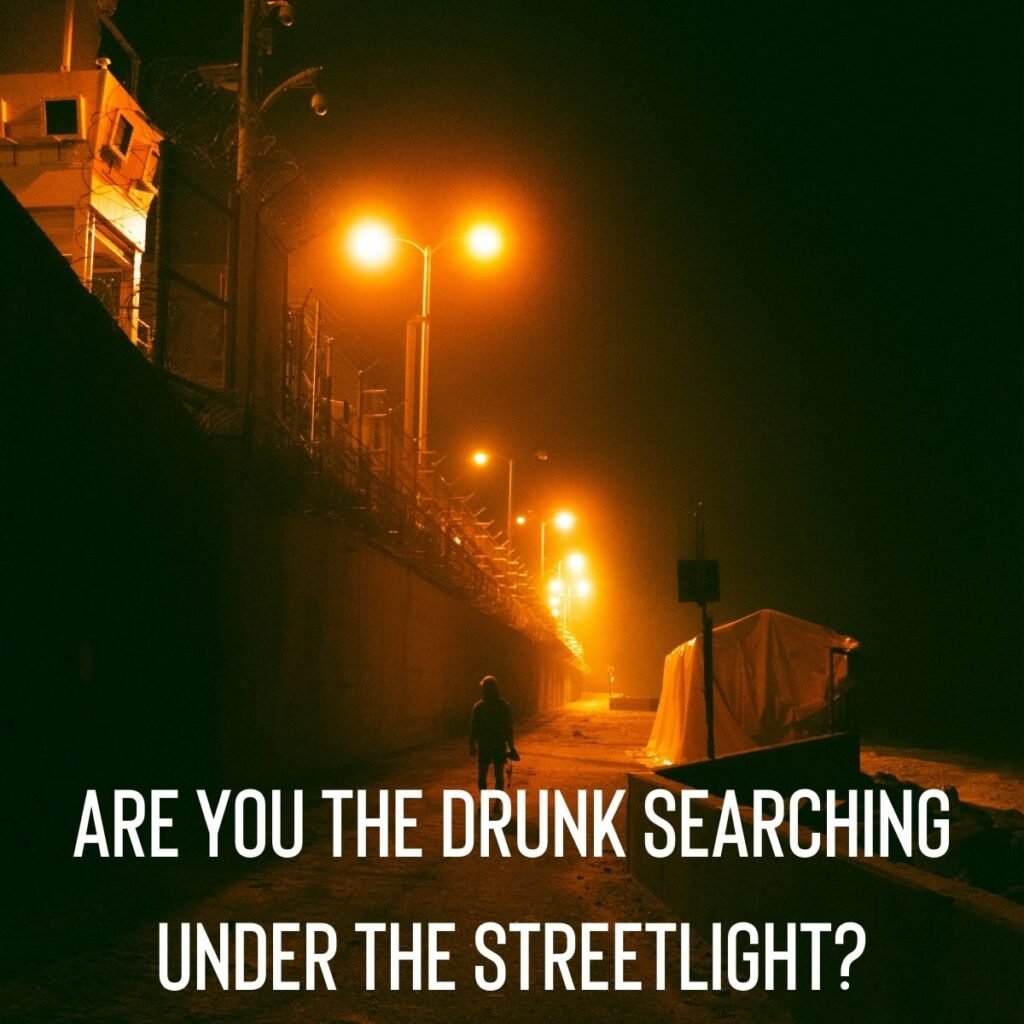
Are you the drunk searching under the streetlight?
The streetlight effect is a type of observational bias. It comes from the often-quoted story about the drunk and the streetlight and appears first in Mulla Nasruddin tales.
It goes like this:
A policeman sees a drunk man searching for something under a streetlight and asks what the drunk has lost. He says he lost his keys, and they both look under the streetlight together. After a few minutes, the policeman asks if he is sure he lost them here, and the drunk replies, no, and that he lost them in the park. The policeman asks why he is searching here, and the drunk answers, “this is where the light is.” (From Wikipedia)
Though people find it funny when they hear it for the first time, we engage in this kind of behavior all the time. The streetlight, in this case, is our genetic knowledge, experiences we have gone through, and everything we have learned from books and other people. When we face a problem, a question that we need to solve, we try and mine this data unconsciously, often in a matter of seconds. And unlike the drunk, who does not find the keys in the streetlight, we find some solutions that look like the answers to our questions. And not surprisingly, they are often wrong.
We do not need to fall into this trap again and again. But that requires a fundamental change in our orientation. For most of our lives, we have been interested in our knowledge, our expertise. This works when the problem you are trying to solve is similar to what you have already gone through. It does not work for novel issues, however. And most of the problems are novel if you look at them closely.
As Heraclitus says
“No man ever steps in the same river twice, for it’s not the same river, and he’s not the same man.”
This is true in real life as it is true in philosophy.
The fundamental change required to be ready for the novel situations is to be interested in ignorance more than knowledge. It requires being in touch with our vulnerabilities of now knowing, being ignorant, being the child walking for the first time. This change would shift our behavior to pausing a little before we settle on a conclusion, checking other sources, asking people, reading books about the topic. In short, we are being open to outside information, being vulnerable, being a learner, being alive.
What do you think? Do you find engaging in the “Streetlight Effect?” How do you prevent it from happening?

0 Comments